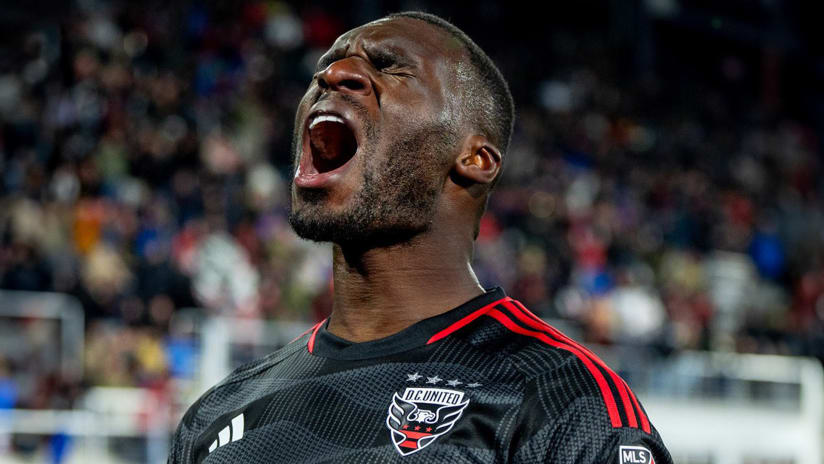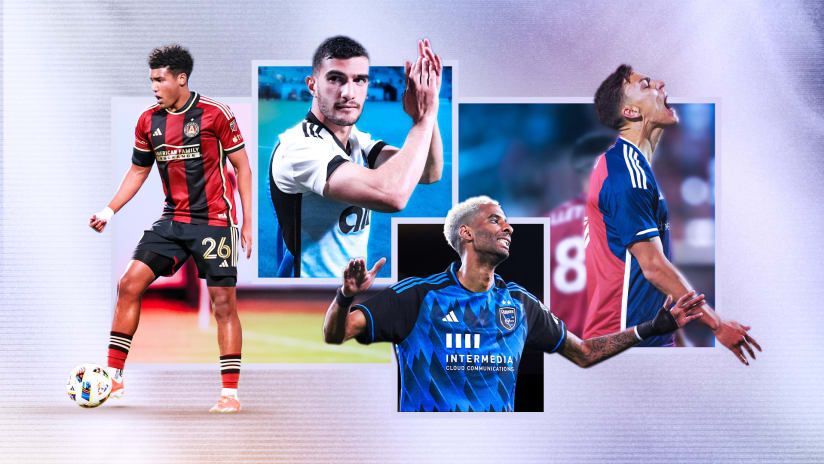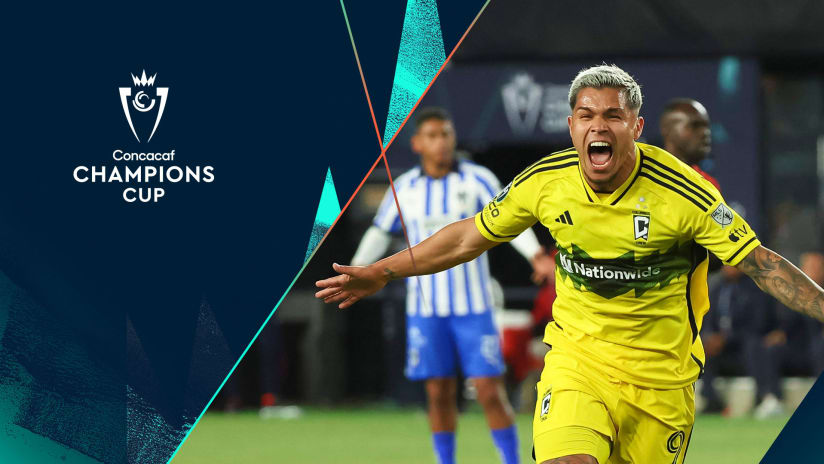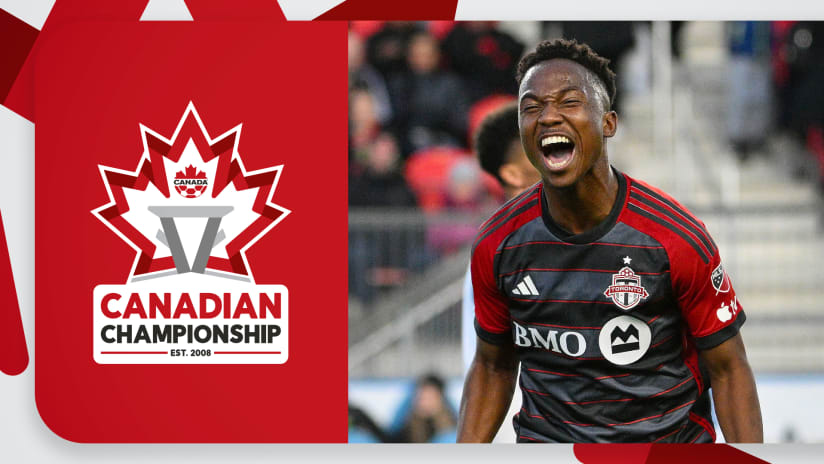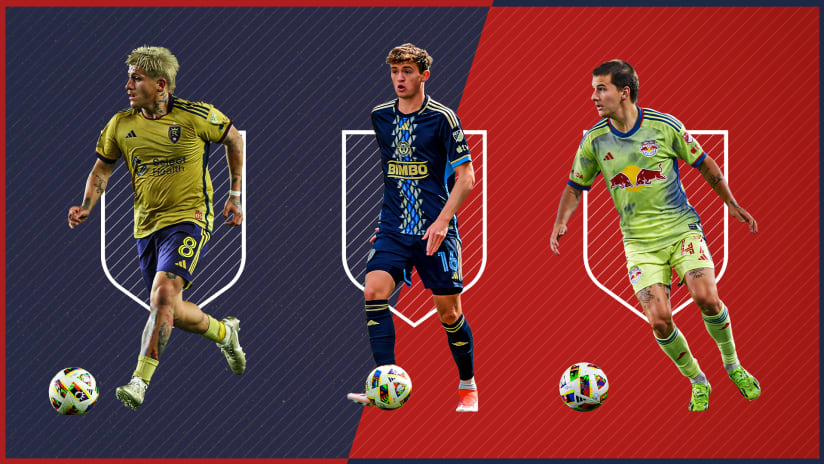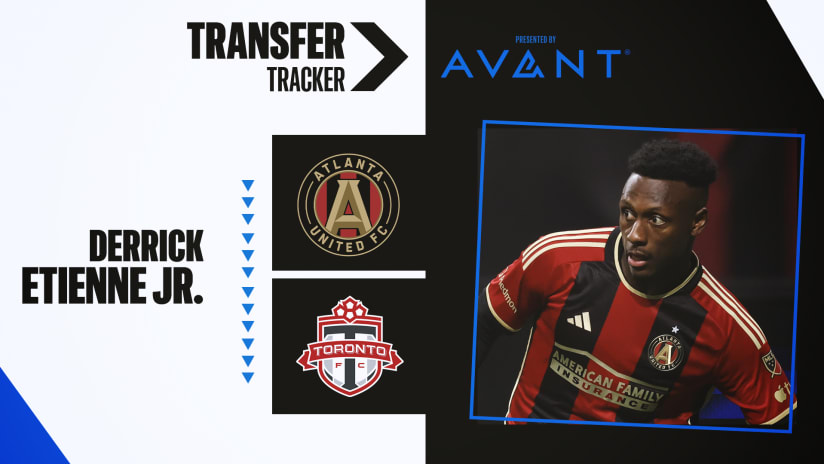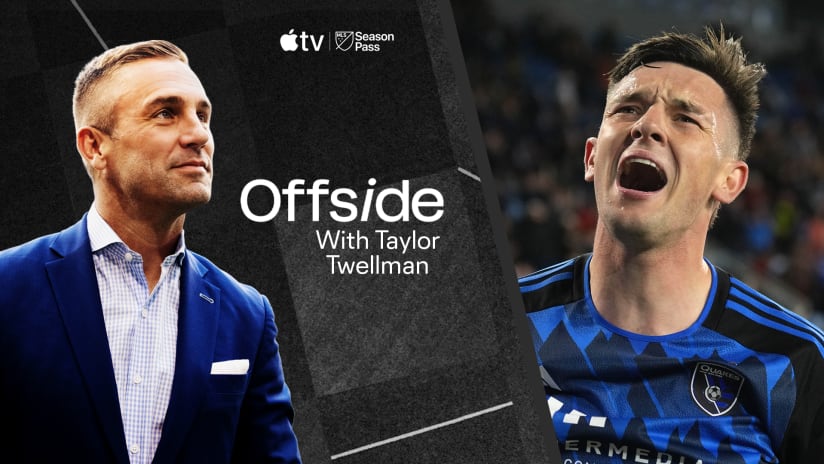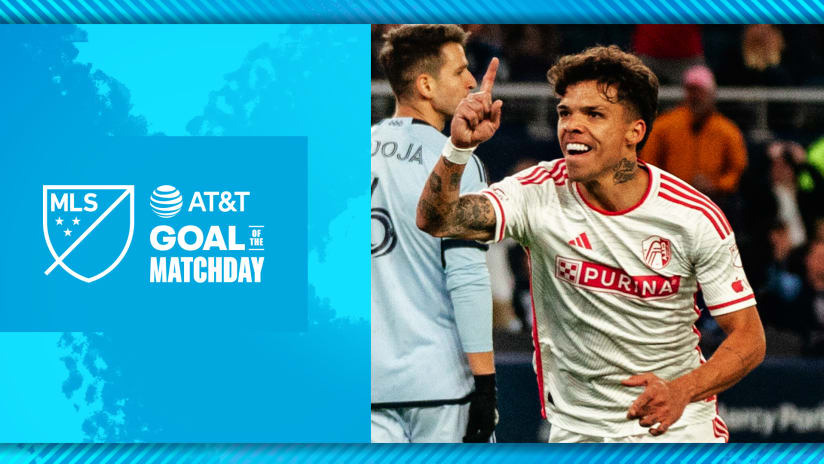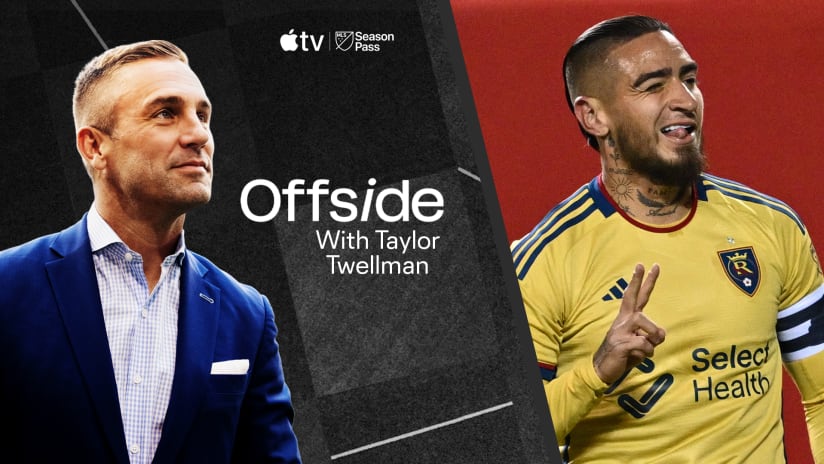Last February I spent five days in Charleston, S.C., trying to find out exactly what was going on inside Eddie Johnson’s head.
Nothing ever materialized that week, in part because Johnson has always operated under the media’s glare, ever since hesigned with Major League Soccer in 2001 as a precocious but talented teenager. He was the subject of at least five other major interviews in Charleston while trying to acclimate to his new role as the biggest star on D.C. United, and there simply wasn’t any time to slow down and talk.
But even after we caught up a week later – and had a candid 45-minute conversation about his status as the most outspoken, controversial player in MLS – I still came away wondering if there’s any use trying to solve him. He’s the most captivating figure in North American soccer -- in part because of his feats, but mostly for his faults -- and it’s become impossible to guess what he’ll do next.
Take his outburst on social media this week. On Saturday, he needlessly kicked the ball into Real Salt Lake's Carlos Salcedo after fouling the RSL defender in the first half of RSL’s 3-0 win over D.C. United (video above). Twitter, of course, fired up its engines, and what occurred next gave us plenty of insight into EJ's struggling psyche.
This season on Twitter Johnson had already been called the "worst player in the league," "overpriced" and "lazy," and after the Salt Lake game a few fans suggested he be traded. Some insisted his attitude – not his skillset – kept him out of the World Cup in Brazil, easily one of the biggest blows of Johnson’s career.
The response this time was rare for an MLS player, and venomous. Johnson did plenty of things wrong when he started typing, but perhaps none was worse for his public image than when a fan informed him that Washington fans reward hustle, even when a player is struggling.
“Lol,” Johnson said. “I’m not here to please your town buddy.”
- INSTANT REPLAY: Did Johnson deserve a red card vs. RSL?
I get it. Twitter is a tough place to spend time, especially for some public figures. When United States head coach Jurgen Klinsmann sent his congrats out to retiring German icon Miroslav Klose on Monday, for example, a fan labeled him "a Nazi" for not likewise honoring Landon Donovan last week. Klinsmann has certainly heard worse in his career, but isn’t that something? Twitter often offers up new reasons to stay off Twitter.
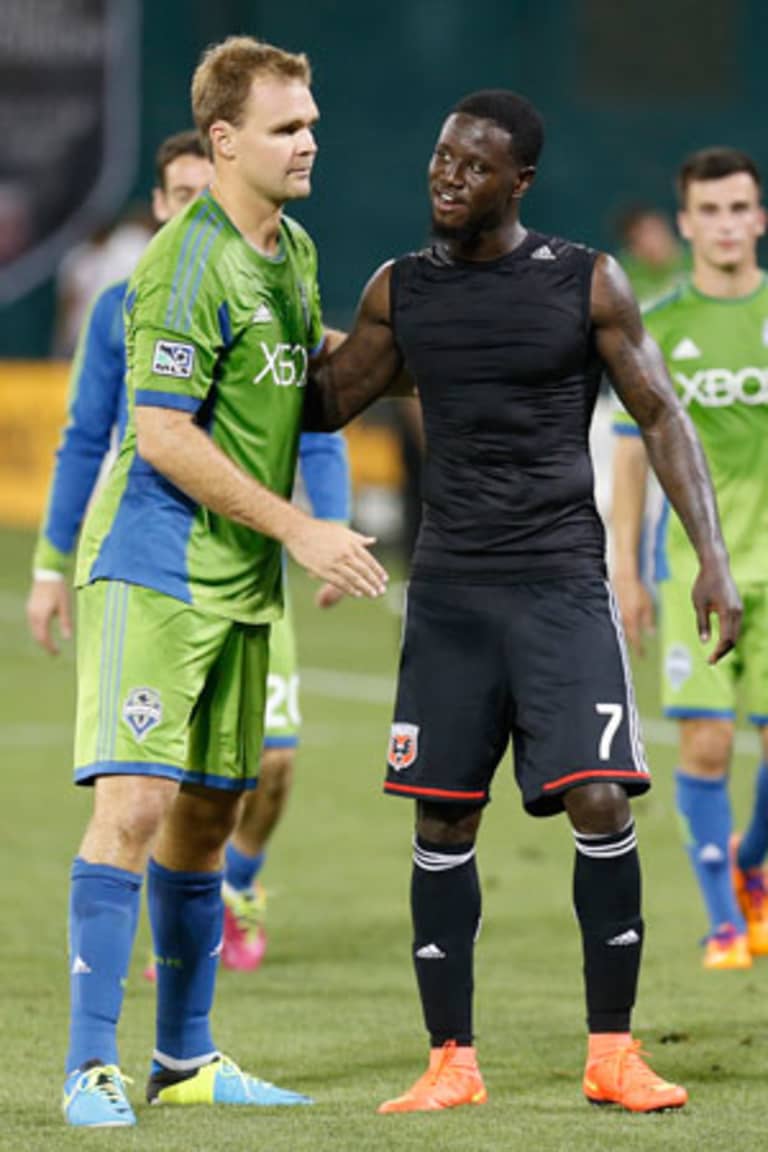
Which is why Johnson’s eruption was so surprising. He should know much better by now, considering some of the trouble he’s gotten into before. But the same backstory that made him a media darling –
an African-American kid who grew up poor making his name in a largely white, middle-class, suburban sport
– has also indirectly made him unlikable to some, mostly because of the defensive posture engrained in him long ago.
“The guys who had the same upbringing as I had, we’ve been taught a certain way how to defend ourselves because of the neighborhood we grew up in,” he told me in February. “And sometimes our emotions on the field get misperceived or our behavior has been misperceived, and it becomes an issue.
“But in other sports, being a winner and being emotional, it doesn’t get misinterpreted. But in soccer, you have guys like me who come from the inner city, and that’s something that’s new to a suburban sport. People aren’t so sure, or they don’t want to take a chance on a person.”
That’s not an excuse for his behavior, but it’s a point worth considering. Scan the rest of the other major North American leagues and you’ll find plenty of athletes who share elements of Johnson’s upbringing, including Seattle Seahawks running back Marshawn Lynch, a friend from which Johnson sometimes seeks counsel. And in leagues like the NFL and the NBA, coaches and fans seem more willing to overlook a player’s off-field discretions, however serious they might be.
“Sometimes it’s nice to talk to guys like [Lynch] because some of them have been in worse situations than me with DUIs or being arrested,” Johnson said. “And yet, they’re still accepted in an organization where the coach knows what they do on the field at the end of the day, and they’re not being judged by any of the other stuff.”
- ANALYST: Final thoughts on Week 22 in MLS
Couple Johnson’s background with his rocket ride to success – he was a pro with the Dallas Burn at just 17 years old, a point sometimes forgotten by his critics – and few players in MLS, if any, have walked a single step in Johnson’s shoes.
The recurring theme in Johnson’s life – as illustrated last year in a revealing article by ESPN.com’s Jeff Carlisle – appears to be trust. If he’s in a comfortable, nurturing environment where he can trust those around him in his personal life or in his professional one, he can thrive. Take that away from him and he reverts to the defensive emotions he believes can be misperceived by fans and media members willing to pounce.
“Johnson puts up some walls,” former Kansas City Wizards teammate Jimmy Conrad told ESPN.com. “There’s a trust factor that comes into play, and it takes awhile to earn his trust. And there’s times where he can get a little emotional and probably say things he likely regrets later.”
But how badly should we feel for Johnson when he says those things, and seemingly makes trouble for himself at every turn? How often will his fans and his bosses offer forgiveness?
The Seattle Sounders and their supporters embraced Johnson in 2012 en route to his winning the MLS Comeback Player of the Year. But the goodwill with the fans and the front office ran out the next season, and he moved on to DC.
It’s not a crime that he wanted more money, but in Seattle he reportedly bad-mouthed lesser players in front of their faces, with one unnamed Sounders player quoting Johnson to ESPN.com earlier this year: “I score goals,” Johnson allegedly said. “But I can’t do it if these guys are s---.”
And he hasn’t always done any favors for himself in the nation's capital. In May he called out his teammates, saying the Sounders “had better guys that had more quality on the ball.” He later apologized and insisted his words were misperceived.
Just two weeks ago his humbling mark of four goals in 19 games this season caught the attention of Houston Dynamo great and former US national team striker Brian Ching, who hinted that Johnson’s game was motivated by money.
"Once he gets that contract or DP status, he tends to disappear a little bit,” Ching told The Eddie Robinson Show podcast in Houston. “If I was to sign him, I would say, 'Hey, here's $10,000 a goal. You're making $50,000 or you're making $100,000. You want money? Score goals.’ He has the talent to do it. I think he loses that drive, that mentality once he gets rewarded or gets his contract."
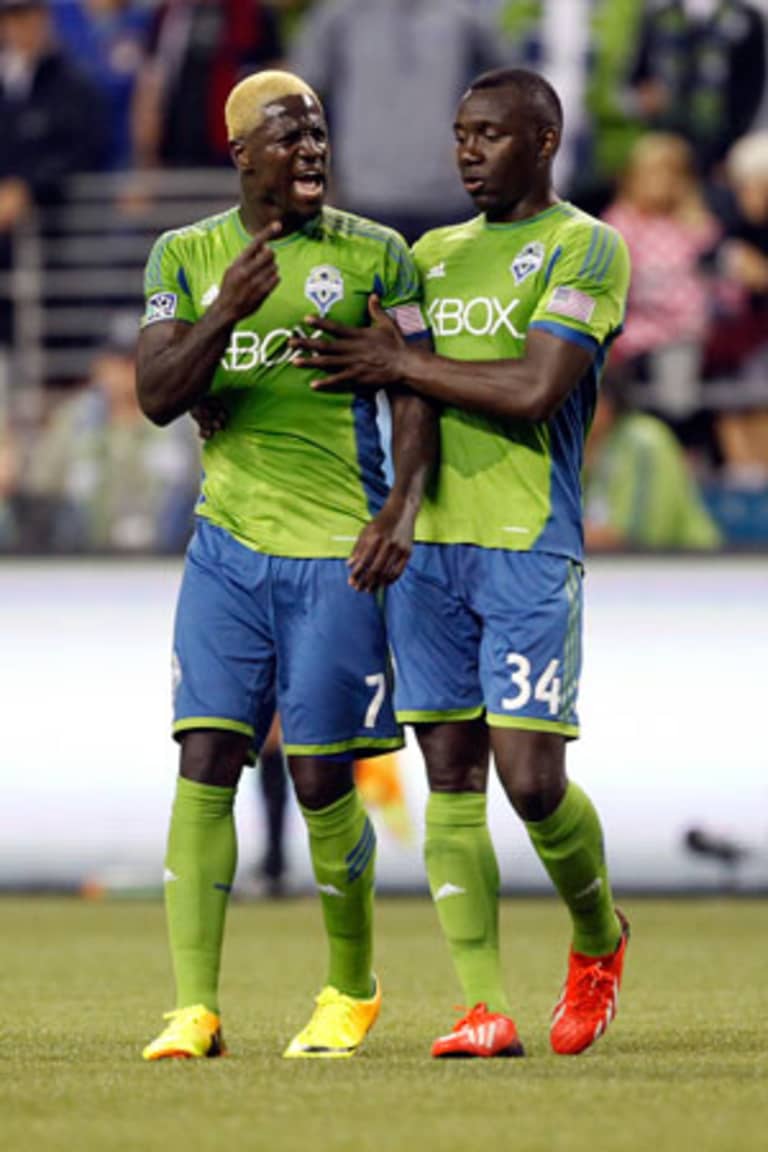
There’s some history here, for sure. Ching and Johnson were teammates on the United States’ ill-fated 2006 World Cup team, when Johnson played, and Ching surprisingly rode the bench for three games. Prior to last week, though, there was no public indication that the two were adversaries, and Ching’s recent comments were likely just punditry.
No harm, no foul, right? Wrong.
Johnson instantly questioned Ching’s playing credentials, called him jealous and defended himself to fans that pleaded for peace.
“I just stand up for myself and what I believe in,” Johnson told one fan on Twitter. “He's a hater and I'm a better player.”
Johnson didn’t publicly apologize for those comments. Nor should he have. Ching can certainly handle it, and the back-and-forth injected some life into an otherwise routine Sunday night game in Houston.
And for all the criticism, deserved as it may be, the truth is Johnson’s personality as a hero and a villain is something special, because there simply aren’t many like him in MLS.
Johnson took to his Twitter account on Monday to publicly apologize to the fans he offended over the weekend, but with every case of mea culpa it's getting tougher to stand in his corner.
Even D.C. head coach Ben Olsen – who played with Johnson on that 2006 United States team and championed Johnson's offseason arrival – told the media on Tuesday he knows his star player can do better when it comes to handling episodes like this one.
"He’s gotta react better to things that don’t go his way," said Olsen, who added that he met with Johnson following the Twitter incident. "I love the guy, but he’s gotta get better in a lot of areas."
After not responding to a request to be interviewed for this article, Johnson met with the local media in Washington after training on Tuesday and echoed the same sentiments he expressed to me in February: "When I’m being something I’m not, I’m not being Eddie Johnson."
"I’m a really emotional person – I’ve always been like that growing up," he said Tuesday. "I’ve always felt like this is something I’ve got to get better at. I’ve always tried to defend myself – growing up where I grew up with no older brother you always have to take up for yourself. It was something that was bad timing – there’s no excuses for it.”
So what comes next? Precedent indicates Johnson could face a suspension for the incident with Salcedo. And despite his apology tweet, there are still clearly some reparations to be done with the fans.
But at least he seems inclined. Johnson doesn’t think much of his reputation in the press – “I don’t care about how the media thinks of me,” he said in February – but he still cares about his fans, or he wouldn’t have spent Monday re-tweeting the supportive comments from those still in his camp.
Of course he’ll have to perform better on the field – more goals and a United playoff berth should help – but his bigger challenge continues to be finding the balance in his head between the person he wants to be and who people expect him to be.
Don’t expect it to be easy.
“I gotta find that balance, and that’s what kills me,” he said in February. “I’m being true to myself, but it kills me publicly with other coaches and teams. But at the end of the day, I’d rather be myself and have someone not like me than be someone I’m not.”


